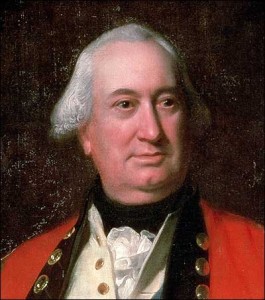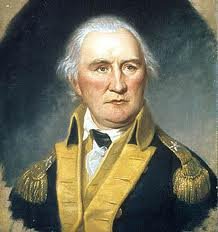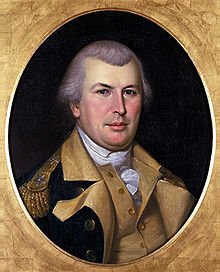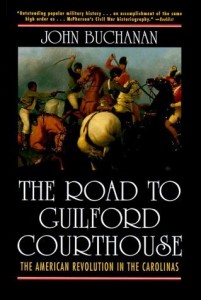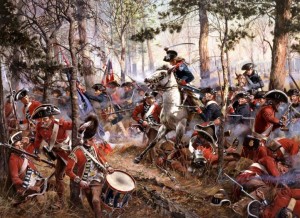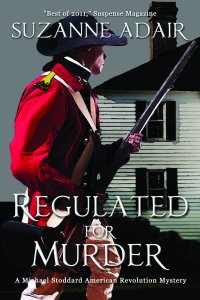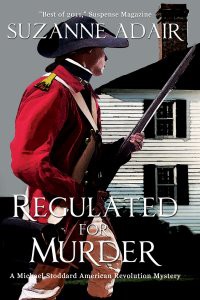Welcome to my blog! The week of 29 June – 5 July, I’m participating with more than two hundred other bloggers in the “Freedom to Read” giveaway hop, accessed by clicking on the logo at the left. All blogs listed in this hop offer book-related giveaways, and we’re all linked, so you can easily hop from one giveaway to another. But here on my blog, I’m posting a week of Relevant History essays, each one focused on some facet of the American War of Independence. To find out how to qualify for the giveaways on my blog, read through each day’s Relevant History post below and follow the directions. Then click on the Freedom Hop logo so you can move along to another blog. Enjoy!
*****
Earlier this year, Queen Elizabeth II celebrated her Diamond Jubilee. Much has been made of a poll finding that, among Americans, the queen had a 61% approval rating while President Obama’s approval rating was a mere 45%. Some Americans declared, “Yes! Let’s return to the fold!” Brits quipped, “We welcome you, as long as you pay that back tax on tea first!”
Those findings don’t mean that most Americans are ready to chuck it all and leap into the lap of monarchy. The poll compares an elected official with a non-elected official. So it’s an “apples and oranges” comparison.
However Americans are undeniably fascinated with Britain. Helped along by Hollywood and American mythology, Britain represents an icon of both urbanity and villainy. Many Americans with ancestors from the British Isles succumb to the genetic pull and vacation in the UK. And let’s face it, the Brits do pageantry 24/7 to the heights that Americans, caught up in Calvinistic roots, cannot begin to approach—although certain annual events such as the Kentucky Derby come close.
The year 2012 is an election year in America. A good many “issues” are on the table. People are disgruntled. Beneath everyone’s vitriolic exchanges over the issues, the suspicion skulks for many Americans that the country is tromping through a tangled, endless forest. That it stepped off a path defined by founders more than two hundred years ago. And that squabbling over issues is not what the founders envisioned for the future of America.
It so happens that the country’s founders addressed a number of these hot issues in their speeches and writings. Read the counsel of America’s founders:
“Experience declares that man is the only animal which devours his own kind, for I can apply no milder term to the governments of Europe, and to the general prey of the rich on the poor.” (Thomas Jefferson)
“I have already intimated to you the danger of Parties in the State, with particular reference to the founding of them on Geographical discriminations. Let me now take a more comprehensive view, and warn you in the most solemn manner against the baneful effects of the Spirit of Party, generally.” (George Washington)
“The essence of a free government consists in an effectual control of rivalries.” (John Adams)
“If we mean to have Heroes, Statesmen and Philosophers, we should have learned women.” (Abigail Adams)
“Great is the guilt of an unnecessary war.” (John Adams)
“Each generation should be made to bear the burden of its own wars, instead of carrying them on, at the expense of other generations.” (James Madison)
“I think myself that we have more machinery of government than is necessary, too many parasites living on the labor of the industrious.” (Thomas Jefferson)
“And I have no doubt that every new example will succeed, as every past one has done, in showing that religion and Government will both exist in greater purity, the less they are mixed together.” (James Madison)
“Believing with you that religion is a matter which lies solely between Man and his God, that he owes account to none other for his faith or his worship, that the legitimate powers of government reach actions only, and not opinions, I contemplate with sovereign reverence that act of the whole American people which declared that their legislature should ‘make no law respecting an establishment of religion, or prohibiting the free exercise thereof’ thus building a wall of separation between Church and State.” (Thomas Jefferson)
Did any of that resonate with you? Do American people know that the country’s founders said these things? Do you get the feeling that America would be better off if citizens actually took the counsel of the founders?
This week, my guests have covered territory that was probably omitted from your high school history class. Omitted details often point to lessons we should be learning about human nature, religion, government, and society. In other words, they’re what makes history relevant.
We aren’t learning from history very well. Why does this matter? Because every time we don’t learn a lesson, we risk making a costly mistake. Ask yourself what can be done about it. (And the answer isn’t leaping into the lap of monarchy.)
This second annual week-long Fourth of July wouldn’t have been possible without you or my talented guests: Don Troiani, Peggy Earp, Don Hagist, and John Buchanan. What worlds can they open for you? Browse back through the posts. Look for their works. Then comment here on something you learned this week that made history relevant to you. Thanks for stopping by!
*****
Contribute a legitimate comment on this post by today at 6 p.m. ET to be entered in a drawing to win one of two autographed copies of Regulated for Murder. Delivery is available worldwide. Make sure you include your email address. I’ll publish the names of all drawing winners on my blog the week of 9 July.
**********
Did you like what you read? Learn about downloads, discounts, and special offers from Relevant History authors and Suzanne Adair. Subscribe to Suzanne’s free newsletter.





